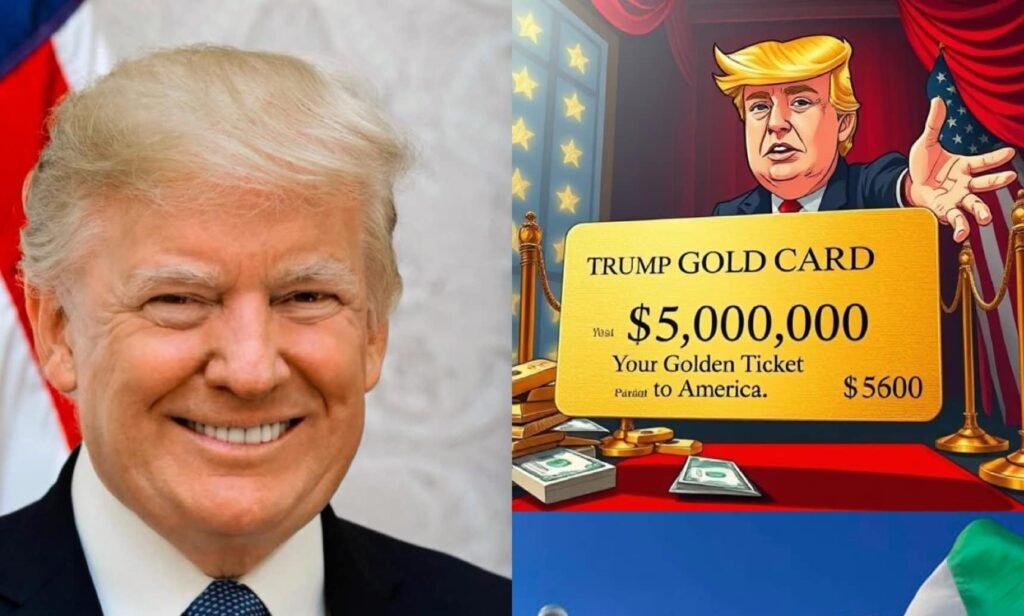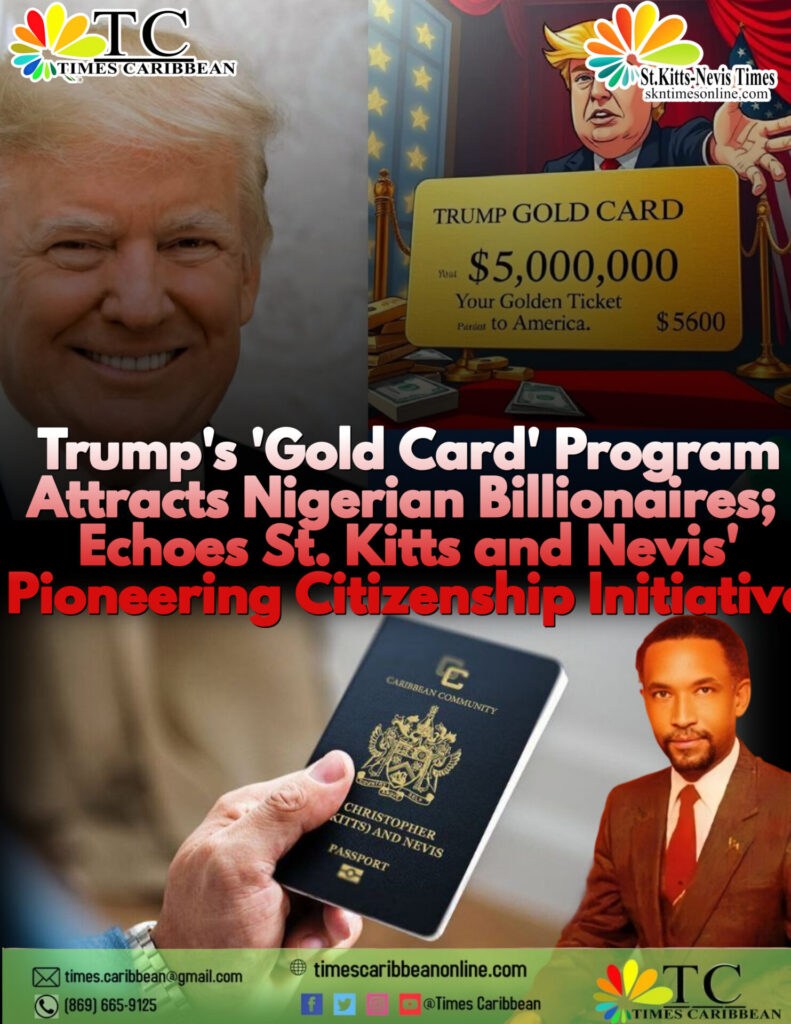Trump’s ‘Gold Card’ Program Attracts Nigerian Billionaires; Echoes St. Kitts and Nevis’ Pioneering Citizenship Initiative

In a bold move to attract affluent investors, President Donald Trump has unveiled a new “Gold Card” program, offering U.S. residency and a pathway to citizenship for a $5 million investment. Within 24 hours of the announcement, over 20 Nigerian billionaires have expressed interest in acquiring the exclusive card.

The “Gold Card” aims to replace the existing EB-5 visa program, which required investments ranging from $800,000 to $1.05 million. This initiative seeks to draw wealthy individuals who can significantly contribute to the U.S. economy through substantial spending and tax contributions. Commerce Secretary Howard Lutnick emphasized the program’s intent to attract “world-class global citizens” while addressing concerns about potential misuse by criminals and corrupt officials.

This approach mirrors the Citizenship by Investment (CBI) program introduced by St. Kitts and Nevis in 1984. Spearheaded by Prime Minister Dr. Kennedy Simmonds and conceptualized by Ambassador Dr. William V. Herbert, the CBI program offered citizenship to foreign investors in exchange for economic contributions. This pioneering initiative has since been adopted by several countries worldwide, aiming to boost economic development through foreign investments.
While the “Gold Card” program has garnered interest from international elites, it has also sparked debates about the ethics and implications of monetizing citizenship. Critics argue that such programs prioritize wealth over merit and may inadvertently facilitate illicit financial activities. As the U.S. embarks on this new venture, it reflects a growing global trend of nations leveraging residency and citizenship as tools for economic enhancement.

Leave a comment
You must be logged in to post a comment.